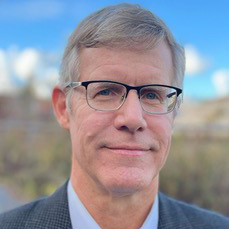The recent release of a new report by the Pew Forum, “Religion Among the Millennials,” caused the usual stir in the news media. The Millennials are a preoccupation of people my age and above, and generally the tone of media attention is, well, rather parental. The implied questions are, “What are they thinking?” and “Why is it so hard to understand them?”
The Pew report summarized trends that social scientists have been tracking for some time. The Millennial generation (roughly those born after 1981) are less involved in religious institutions than their parents were and less certain about their belief in God (though they pray and believe in heaven and hell, at about the same rates as everyone else). What this means is the subject of debate, and religious leaders are concerned about the impact these trends will have on their institutions.
They should be. Fully a quarter of the Millennials have no ties to organized religion, neither attending a worshipping community or identifying with a religious tradition. Research by Berkeley sociologists Michael Hout and Claude Fischer suggests that if one is not raised attending church one is less likely to attend as an adult.
Millennials are also less likely to attend church because of changes in their economic circumstances and family formation patterns. It has become common for emerging adulthood to last well into the 30s. It takes that long for the majority of younger Americans to achieve all the traditional markers of adulthood -- having their own independent household, a good and stable job, a partner, and children. And a larger percentage of Millennials will remain childless, or move in and out of marriage-like relationships, throughout their adult lives. A big impetus to church attendance for all adults, and most especially for men, is family formation. Churches are often sought out for the moral socialization of children and parenting support. So changes in family formation mean changes in the way people think about and affiliate with organized religion. Across religious traditions, a very large percentage of congregational time, energy, and resources go to ministries organized around the stages of family formation -- groups and education programs for children, for teens, for moms and dads.
Sociologist Robert Wuthnow, in “After the Baby Boomers,” argues that the failure of religious institutions to provide meaningful ministries for those in the lengthening period of emerging adulthood is the key reason that young adults are not as religiously involved as their parents. Wuthnow points out that if religious institutions persist in treating the first decade and a half of young adults’ lives as irrelevant, then those young adults are unlikely to become religiously involved later in life when and if they do form families of their own.
Wuthnow’s perspective on young adults’ distance from organized religion is different than that of other commentators and social scientists. Some argue that what is different about the Millennials is their overall moral and cultural style. Sociologist Christian Smith, for example, argues that a pragmatic, therapeutic, deistic morality defines this generation. But I would argue that this orientation is not a radical change, but rather a generationally-specific form of expression for longstanding features of American religiosity. Americans have always been pragmatic moralists (preferring a “common creed” of moral civility, or “golden rule” Christianity, to any form of extremism or doctrinal rigidity). Even their therapeutic orientation (doing what feels good) and eclectic approach to spirituality are not unique to the Millennials, but trends begun by their parents, the Boomers.
Today’s young adults are also struggling with fundamental economic insecurity. Even before the most recent recession, they were likely to work at 8-12 jobs before finding long-term stable employment. Often their primary relationships are friendship networks, not family or romantic partners. They are more cynical about institutions of all kinds than their parents were, but not because they are value-less or morally indiscriminate. In fact, they have passionate political and social commitments, are tolerant and care about social justice, and expect to have a voice in the policies that shape their lives. They also expect institutions to express their values, or else they feel no obligation to affiliate.
To attract these young adults, religious leaders have to rethink the taken-for-granted package of ministries they offer, de-center support for family formation as their primary area of ministry for those under 35, adopt less hierarchical styles of organization, and listen more. This is more difficult than railing against “those young people” and their supposed lack of a moral center, but it is more likely to achieve the desired result.
Penny Edgell is a professor of sociology at the University of Minnesota.














